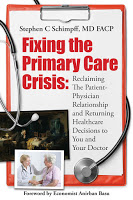Noisy Hospitals Cause Alarm Fatigue and Patient Distress

A recent study from the University of Chicago revealed that hospital noise is reaching 67 decibels in some environments, which is considerably higher than the World Health Organization’s (WHO) recommendation of 30 decibels in the patient room. Each year, the noise level in hospitals rises by an average of 0.35 decibels. An increasing number of devices are being hooked up to monitors every year, which is creating a sea of constant beeping and numerous patient safety concerns.
When the level of noise increases in the hospital because of high-pitched alarms, a patient’s sleep is more likely to be disturbed. The beeping of patient monitors has been found to be more disruptive to patients that the sounds of human voices or environmental noises like traffic.
Every hour of sleep that is lost can cause a patient’s blood pressure to rise by up to 6 points. Even if a patient’s sleep was not disturbed, high frequency noise can still cause a patient’s heart rate to rise. Hospital noise can also cause higher rates of heart disease, impaired immune function, and increased memory problems and depression in patients.
The effects of hospital noise can lead to other complications. Using sedatives to combat the effects of the sounds could create a higher risk of patient falls. If a patient experiences a fall, he could face an extended hospital stay, causing the patient to experience the noisy environment for even longer.
Nurses and Alarm Fatigue
Nurses experience the constant beeping and high-pitched noises of the hospital on an almost daily basis. The volume (both sound- and number-wise) of alarms has made it difficult for nurses to respond or assess which patients need immediate attention, if any at all. In fact, almost 95% of alarms are said to be alerting nurses to non-actionable events including false alarms.
Alarm fatigue is becoming a growing concern in the health care environment. Because so many devices are hooked up to alarms and the noise is so frequent, nurses are becoming desensitized to the sounds of monitoring alarms. Desensitization can lead to missed alerts or a delayed response in addressing the cause of the alarm, affecting a patient’s quality of care.
Reducing hospital noise is not just an issue of comfort, but an issue of safety for patients and staff. Considering only 5% of alarms are alerting nurses to actionable events, there is little evidence to suggest that alarms should be sounding off 24/7, except when triggering actionable alerts.
There are exceptions, however, as intensive care and cardiac care units require constant patient monitoring due to the delicate nature of the unit.
Patients at risk of falling or wandering also require the use of bed-exit alarms, and are in most instances, actionable. The best solution to minimizing alarm fatigue and the annoyance of bed-exit alarms is to implement an alarm that automatically resets when a patient repositions or gets back into bed.
By silencing and reinstating the alarm without nurse intervention, noise levels can be reduced and false alarms can be eliminated.
Curbing the noise level can help patients rest and recover in the hospital without fearing noise-related adverse effects like insomnia or heart complications. Nurses can benefit from a focused work environment without the distraction of unnecessary beeping and alarms. Reducing the noise level by limiting the number of alarms can help hospitals meet the 30 decibel range suggested by the WHO.








